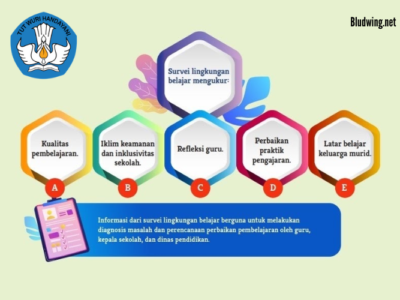Language is a powerful tool that connects people, cultures, and ideas across the globe. One of the fascinating journeys in the realm of languages is the transformation from Bahasa Indonesia KE Bahasa Inggris, or Indonesian to English. This journey not only involves linguistic evolution but also highlights the intricate interplay of culture, history, and globalization. In this SEO friendly article, we will delve deep into the nuances of Bahasa Indonesia to Bahasa Inggris transformation, exploring its historical roots, linguistic challenges, and the significance of this bilingual journey.
The Rich Tapestry of Bahasa Indonesia
Before we dive into the world of language transformation, it’s essential to understand the beauty of Bahasa Indonesia. This rich and vibrant language is the national language of Indonesia, a country that comprises thousands of islands, each with its own dialects and languages. Bahasa Indonesia serves as a unifying force, bringing together people from diverse ethnicities and backgrounds. It’s a language of unity, identity, and cultural heritage.
The Global Relevance of Bahasa Inggris
On the other side of the linguistic spectrum lies Bahasa Inggris, or English. As one of the most widely spoken languages globally, English has transcended its native roots in England to become a global lingua franca. It is the language of business, science, diplomacy, and pop culture. Learning English opens doors to countless opportunities, making it a valuable asset for individuals worldwide.
The Transformation Process
The journey from Bahasa Indonesia to Bahasa Inggris is a multifaceted transformation that encompasses both linguistic and cultural dimensions. Let’s explore this transformation process step by step
Vocabulary Expansion
One of the primary steps in learning any new language is expanding your vocabulary. For Bahasa Indonesia speakers, this often means embracing a whole new world of English words and phrases. English borrows words from various languages, making it a dynamic and ever-evolving language. Learning English involves not only learning the words themselves but also understanding their nuanced usage and pronunciation.
Grammar and Syntax
Grammar and syntax are the structural elements that give a language its form and function. Bahasa Indonesia has its own set of rules and structures that differ from English. Learning English means grasping new grammatical concepts, such as tenses, articles, and word order. This can be a challenging aspect of the transformation journey.
Cultural Adaptation
Language is closely tied to culture. Learning English often involves understanding and adapting to the cultural nuances that accompany the language. This includes idiomatic expressions, humor, and social customs. It’s not just about speaking the words; it’s about understanding the context and cultural subtleties.
Practice and Immersion
As the saying goes, Practice makes perfect. Immersion in the English speaking environment is a crucial aspect of mastering the language. This can be achieved through various means, such as language courses, travel, or even online language exchange platforms.
The Role of Technology
In the modern age, technology plays a pivotal role in language transformation. Learning resources are abundant, with countless language learning apps, websites, and online courses available. These tools can aid in vocabulary acquisition, grammar practice, and even provide virtual language immersion experiences.
The Significance of Bahasa Indonesia to Bahasa Inggris Transformation
The transformation from Bahasa Indonesia to Bahasa Inggris is more than just a linguistic journey; it’s a bridge between cultures and a pathway to global opportunities. Here are some significant aspects of this transformation.
Global Communication
English is the global language of communication. Proficiency in English allows individuals from Bahasa Indonesia-speaking backgrounds to connect with people from all corners of the world. Whether it’s for business, education, or travel, English opens doors to global conversations.
Education and Research
Many renowned educational institutions worldwide use English as the medium of instruction. Learning English is often a prerequisite for pursuing higher education and conducting research in various fields. It allows access to a vast repository of knowledge and opportunities for intellectual growth.
Economic Advancement
In the globalized world, English proficiency is a valuable asset in the job market. Multinational companies often require employees to have a good command of English. It can lead to better job prospects, career growth, and higher earning potential.
Cultural Exchange
Language is a gateway to understanding and appreciating different cultures. By learning English, individuals from Bahasa Indonesia speaking backgrounds can engage in cultural exchange, gain new perspectives, and foster international friendships.
Conclusion
The transformation from Bahasa Indonesia to Bahasa Inggris is a captivating journey that opens doors to a world of opportunities. It involves vocabulary expansion, grammatical adjustments, cultural adaptation, and immersive practice. In the age of technology, learning English has never been more accessible, making it a valuable skill for personal and professional growth.
As Bahasa Indonesia speakers embark on this transformation, they become global citizens, connecting with people from diverse backgrounds and contributing to the exchange of ideas, culture, and knowledge on a global scale. This journey is not just about mastering a language; it’s about embracing a world of possibilities. So, whether you’re a language enthusiast or someone looking to broaden your horizons, the path from Bahasa Indonesia to Bahasa Inggris awaits, promising a beautiful journey of linguistic and cultural discovery.

















Comments